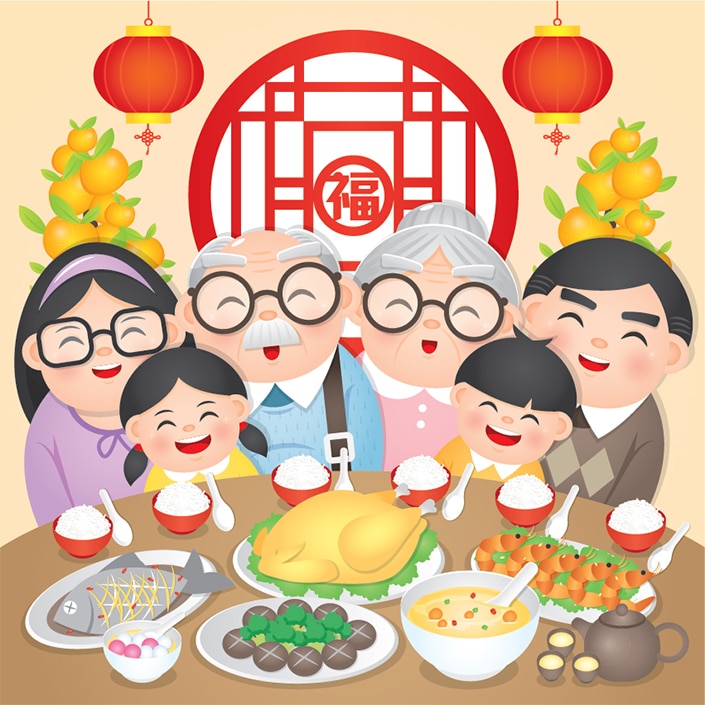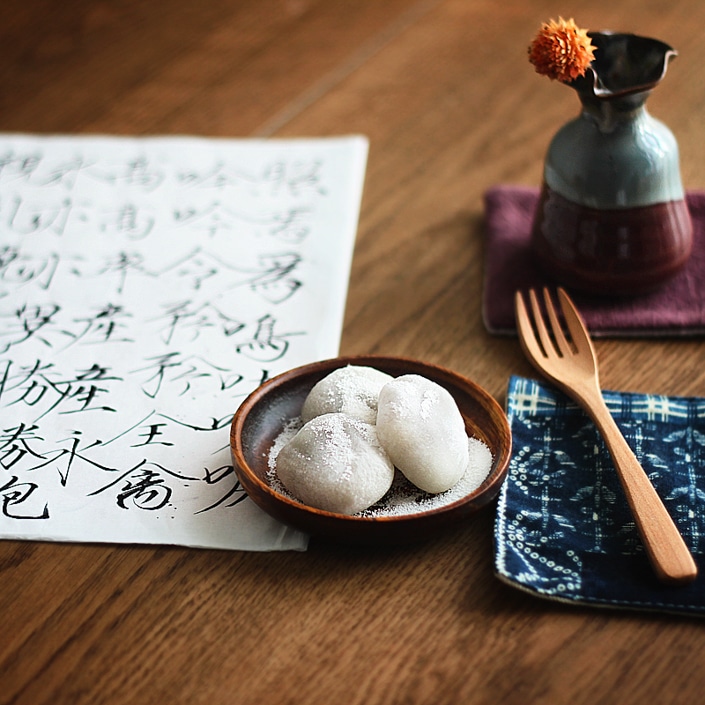Demystifying Chinese Idioms: A Comprehensive Guide for Beginners
Learn Chinese in China or on Zoom and gain fluency in Chinese!
Join CLI and learn Chinese with your personal team of Mandarin teachers online or in person at the CLI Center in Guilin, China.
Chinese idioms, or chengyu (成语 chéngyǔ), are an essential part of the Chinese language. Read on to discover how Chinese idioms are constructed and learn some of the most common Chinese idioms in use today.
22 common Chinese idioms
Let's get straight to it! Here are 22 common Chinese idioms to put into use starting today. The rest of this article provides comprehensive background on the world of Chinese idioms.
| 汉字 | Pīnyīn | English |
|---|---|---|
| 绘声绘色 | huìshēng-huìsè | vivid and colorful, true to life |
| 未雨绸缪 | wèiyǔ-chóumóu | lit. before it rains, bind around with silk; fig. to prepare for a rainy day |
| 呕心沥血 | ǒuxīn-lìxuè | lit. to spit out one's heart and spill blood; fig. to work one's heart out |
| 想入非非 | xiǎngrùfēifēi | to indulge in fantasy |
| 人声鼎沸 | rénshēng-dǐngfèi | lit. a boiling cauldron of voices; a noisy and overexcited reaction or response to something |
| 祸不单行 | huòbùdānxíng | misfortune does not come singly; when it rains it pours |
| 息息相关 | xīxī-xiāngguān | closely bound up |
| 灯红酒绿 | dēnghóng-jiǔlǜ | lit. lanterns red, wine green; fig. feasting and pleasure seeking |
| 一暴十寒 | yīpù-shíhán | lit. have one day's sun and 10 days' cold; fig. sporadic effort; to work for a day then skimp |
| 出神入化 | chūshén-rùhuà | to reach perfection |
| 面面相觑 | miànmiàn-xiàngqù | to look at each other in dismay |
| 小心翼翼 | xiǎoxīn-yìyì | cautious and solemn |
| 敝帚自珍 | bìzhǒuzìzhēn | lit. value the broom as one's own; fig. to attached value to something that is your own |
| 天壤之别 | tiānrǎngzhībié | lit. as different as sky and earth; fig. worlds apart |
| 振聋发聩 | zhènlóng-fākuì | lit. so loud that even the deaf can hear; fig. rousing even the apathetic |
| 津津有味 | jīnjīn-yǒuwèi | with great interest |
| 琳琅满目 | línláng-mǎnmù | lit. glittering jewels to delight the eyes; fig. a dazzling line-up |
| 聚精会神 | jùjīng-huìshén | to concentrate one's attention |
| 蔚然成风 | wèirán-chéngfēng | to become a general trend |
| 目不斜视 | mùbùxiéshì | lit. not look sideways; fig. to be fully concentrated |
| 如法炮制 | rúfǎ-páozhì | lit. to prepare the herbal medicine by the prescribed method; fig. to follow a set pattern |
| 老马识途 | lǎomǎ-shítú | lit. an old horse knows the way; fig. an experienced worker knows what to do |
Download the above table as a PDF or you can view it in Google Sheets.
Lost in translation
After studying Chinese for a few months, especially if learning Chinese in China, students often start to become confident in their language abilities. As listening skills improve, most find that basic conversations become less intimidating.
Having finally reached the point where they feel comfortable with the language and can understand simple conversations, students of the Chinese language may even begin picking up some local 方言 (fāngyán, dialect).
Then suddenly and without warning, one day they’ll be confronted by a curious phenomena—the Chinese idiom.

Chinese people often use Chinese idioms in everyday conversation.
Out of nowhere: 人山人海 rénshān-rénhǎi
Imagine, for a moment, this common scenario: A student is in the process of complaining to a Chinese colleague about how busy the cafeteria is and how there isn’t a chance they’ll get their lunch in time. Her Chinese colleague nods, exclaiming, “人山人海” (rénshān-rénhǎi).
Character for character, the student thinks, this sentence seems basic: it translates to “people mountain people sea.”
Thinking that maybe her colleague was speaking in slang (俚语, lǐyǔ) or in a local dialect (方言, fāngyán), she asks him to repeat the phrase, but this repetition only confirms both that the student heard her colleague correctly the first time and that she is utterly lost. Smiling awkwardly, she tries to steer the conversation towards more intelligible waters.
In fact, 人山人海 (rénshān-rénhǎi) is a Chinese idiom that simply means "a sea of people."
What are Chinese idioms?
Often called “Chinese idioms” in English, the term for idioms in Chinese, 成语 (chéngyǔ), can be directly translated as “already made words” or “formed words.”
Woven together over thousands of years out of ancient myths, fairy tales, philosophical musings, poetry and folktales, Chinese idioms are a testament to the longevity and continuity of the Chinese language.

Most Chinese idioms are four characters long and contain references to ancient Chinese literature and history.
How many Chinese idioms are there?
Depending on which source you consult, there are between 5,000 and 20,000 Chinese idioms. Although most are thousands of years old, they are still very much in use in contemporary Chinese.
There are also modern Chinese idioms that have recently popped up in Chinese online communities and Internet chat rooms.

Chinese idioms are a rich repository of historical and cultural knowledge.
How and when are Chinese idioms used?
Whether used to angrily emphasize a point during an argument, sincerely encourage someone not to quit, or try to show off mastery of the classics, Chinese idioms are bandied about on a daily basis, and some are quite useful for expressing a variety of different meanings.
If you don’t learn at least a few idioms, then many of the nuances of a conversation will pass you by. (However, using them incorrectly also comes with its own set of risks.)
The majority of Chinese idioms are composed of four characters. If they refer to a mythical story or historical incident, as many do, they will succinctly paraphrase some of the most important elements of that story or incident, thereby serving as a kind of mnemonic device for students.
Over the course of their education, elementary and high school students in China memorize thousands of idioms as part of their Chinese education.

Chinese idioms are versatile enough to be used in almost any context.
Chinese idioms and the importance of context
Let’s further consider the original 人山人海 (rénshān-rénhǎi) Chinese idiom that stumped our student in the crowded cafeteria as an example.
Upon returning home after her exasperating cafeteria experience, she will perhaps start digging around on the Internet and in Pleco, her trusty Chinese dictionary app. In Pleco, she will find this definition for that bewildering set of characters:
(idiom) huge crowds of faces; sea of people; a multitude; a vast crowd
Ah-ha! “A mountain of people, an ocean of people.”
Her colleague in the cafeteria was agreeing and commiserating with her. Saying “rénshān-rénhǎi” was just the equivalent of saying, “Yeah, bummer, the cafeteria is super full today.”
In fact, this chéngyǔ frequently comes in handy. Often when discussing social problems, an overpacked metro station or a downturn in the economy, Chinese people will resort to sighing deeply and then muttering this idiom as a way of expressing the idea that, “China really has a lot of people!”
The fact that 人山人海 (rénshān-rénhǎi) is used regularly makes sense considering China’s large population.

人山人海 (rénshān-rénhǎi) is the perfect idiom to use when talking about crowds.
Where do Chinese idioms originate?
Unfortunately, and to the frustration of many Mandarin learners, not all chéngyǔ are as straightforward as 人山人海 (rénshān-rénhǎi).
Because their source material is usually classical Chinese texts or historical records, chéngyǔ often use strange characters or use familiar Chinese characters in strange ways that don’t seem to make grammatical sense, at least from the perspective of modern Chinese grammar.
In the above example, even if you completely grasp every character used (“people” “mountain” “people” “sea”), without additional context, some idioms can seem inscrutable.

Since most Chengyu come from classical Chinese, they can be hard for modern learners to understand.
Chinese idioms and the importance of history
The chéngyǔ 破釜沉舟 (pòfǔ-chénzhōu) transliterates to “break the pots and sink the boats” while 以一当十 (yǐyī-dāngshí) literally means “one to ten.”
These idioms are both excellent examples of how essential it is to have a working knowledge of Chinese history in order to understand how to employ a chéngyǔ.
Were these Chinese idioms to be used in isolation among people unfamiliar with their historical roots, they would be nearly impossible to decipher. With some knowledge of their historical background, however, their meanings suddenly reveal themselves.

Having a basic knowledge of Chinese history can make many Chinese idioms easier to understand.
A Qin dynasty rebellion
In the bitterly cold winter of 207 B.C., the commander Xiang Yu was at the head of a ragged force of 50,000 rebels. Their enemy was the Imperial army of the seemingly invincible Qin Empire under the leadership of Zhang Han.
The emperor sent Zhang Han south to put down the rebellion by any means necessary and placed more than 300,000 imperial soldiers under his command. To the shock and horror of his lieutenants, rebel general Xiang Yu decided that instead of hiding and waiting for the Qin forces to hunt him down and destroy his army, he would attack them.
He readied the army for battle and made for the Yellow River. Upon crossing the river, he again horrified his men by ordering that they sink their own ships, destroy their cooking utensils, and bring only enough provisions for 3 days.

The stories behind some Chinese idioms can be traced all the way back to the Qin dynasty.
The rebel Xiang Yu’s message was clear: victory or death. In the nine engagements that followed, Xiang Yu’s rebel soldiers are said to “each have taken on ten foes.” After losing more than 100,000 of his men, Zhang Han and his imperial troops turned and fled.
Thus, with Xiang Yu’s victory in mind, the meaning of 破釜沉舟 (pòfǔ-chénzhōu) becomes clear. According to Pleco, it means, “reaching a point of no return; to stake everything on success.”
Equally self-evident is the meaning of 以一当十 (yǐyī-dāngshí), which Pleco translates as: “every one of (them, us) is worth ten ordinary people.”
In this way, learning Chinese history will help you master chéngyǔ.

The origin of the Chinese idiom 破釜沉舟 (pòfǔ-chénzhōu) can be traced back to an ancient rebel victory.
Six popular Chinese idioms to learn today
These concise statements can come in handy in a variety of situations. 加油!
| 汉字 | Pinyin | English |
|---|---|---|
| 卧虎藏龙 | wòhǔcánglóng | a place or situation that is full of people with unusual talents |
| 废寝忘食 | fèiqǐn-wàngshí | a description of a diligent, hard-working person; to skip meals for the sake of hard work |
| 七嘴八舌 | qīzuǐ-bāshé | a situation or discussion in which everyone is talking at once |
| 画蛇添足 | huàshé-tiānzú | to improve something unnecessarily; to ruin the effect by adding something superfluous |
| 惊弓之鸟 | jīnggōngzhīniǎo | once bitten, twice shy |
| 千山万水 | qiānshān-wànshuǐ | a long and tiring journey |
Download the above table as a PDF or you can view it in Google Sheets.
Here's a more detailed explanation for each of the above Chinese proverbs about learning:
1. 卧虎藏龙 wòhǔcánglóng
- Literal translation: crouching tiger, hidden dragon
- Meaning: a place or situation that is full of people with unusual talents
- Example sentence: 那个小地方真是卧虎藏龙! | Nàgè xiǎo dìfāng zhēn shì wòhǔcánglóng! | That little place really has many talented/extraordinary people!

Use the idiom 卧虎藏龙 (wòhǔcánglóng) to describe a place full of talented people.
2. 废寝忘食 fèiqǐn-wàngshí
- Literal translation: fail to sleep and forget to eat
- Meaning: a description of a diligent, hard-working person; to skip meals for the sake of hard work
- Example sentence: 他总是为了工作废寝忘食。| Tā zǒngshì wèile gōngzuò fèiqǐn-wàngshí. | For the sake of his job, he’s always working extremely hard.

The idiom 废寝忘食 (fèiqǐn-wàngshí) is a great one to use to describe a workaholic.
3. 七嘴八舌 qīzuǐ-bāshé
- Literal translation: seven mouths, eight tongues
- Meaning: a situation or discussion in which everyone is talking at once
- Example sentence: 小声一点! 别七嘴八舌的! | Xiǎoshēng yīdiǎn! Bié qīzuǐ-bāshé de! | Don’t be so loud! Don’t everyone speak at once!

The idiom 七嘴八舌 (qīzuǐ-bāshé) uses vivid imagery to describe a situation where everyone is talking at once.
4. 画蛇添足 huàshé-tiānzú
- Literal translation: adding feet when drawing a snake
- Meaning: to improve something unnecessarily; to ruin the effect by adding something superfluous
- Example sentence: 你们这是把时间浪费在画蛇添足上。 | Nǐmen zhè shì bǎ shíjiān làngfèi zài huàshé-tiānzú shàng. | You’re wasting your time adding unnecessary stuff.

Like many Chinese idioms, 画蛇添足 (huàshé-tiānzú) comes from a traditional Chinese folktale.
5. 惊弓之鸟 jīnggōngzhīniǎo
- Literal translation: a bird startled by the mere twang of a bow-string
- Meaning: once bitten, twice shy
- Example sentence: 每个人都成了惊弓之鸟。 | Měigèrén dōu chéng le jīnggōngzhīniǎo. | Everyone became frightened out of their wits.

The idiom 惊弓之鸟 (jīnggōngzhīniǎo) can be used to describe someone who frightens easily, just like a bird.
6. 千山万水 qiānshān-wànshuǐ
- Literal translation: a thousand mountains and ten thousand waters
- Meaning: a long and tiring journey
- Example sentence: 他们跨过千山万水,终于来到了这里。 | Tāmen kuà guò qiānshān-wànshuǐ, zhōngyú lái dào le zhèlǐ. | They’ve gone through a lot to finally arrive here.

千山万水 (qiānshān-wànshuǐ) is a great idiom to use when talking about a long journey.
Honorable mention: memorize this Chinese idiom
There is a witty chéngyǔ for almost every event or circumstance: tests and graduations, laziness and procrastination, evil and how to keep it away, work ethic and success, etc. Although most are four characters in length, some are not. For example, one common favorite is five characters long:
山高皇帝远 shān gāo, huángdì yuǎn
- English meaning: “The mountains are high and the emperor is far away."
The closest English equivalent might be, “When the cat’s away, the mice will play,” but this doesn’t capture the depth of mischievousness often involved in this chéngyǔ.
Use cases for 山高皇帝远:
- When you’re having a girls' night out and everyone begins to gossip about their boyfriends: 山高皇帝远 shān gāo, huángdì yuǎn
- If you’re on an international business trip with a colleague and he brazenly uses the company card to buy drinks: 山高皇帝远 shān gāo, huángdì yuǎn
- When you catch grandpa having a secret smoke behind the house, he smiles at you and says… yes, you guessed it: 山高皇帝远 shān gāo, huángdì yuǎn
There are truly a huge number of wonderful videos on YouTube on chéngyǔ as well as many other helpful resources available for free online. Such videos will walk you through the literal meaning, pronunciation, and appropriate context for using commonly heard Chinese idioms.

Despite their rarified origins, Chinese idioms are very useful for describing everyday situations.
Up your Chinese game today!
In addition to the idioms outlined above, Chinese contains a wealth of idioms and sayings about all sorts of topics from learning to the family and beyond. The more idioms and sayings you learn to use, the more natural your spoken and written Chinese will become.
Learning Chinese idioms will also help you pass Chinese proficiency exams like the HSK, which requires knowledge of idioms to pass level 6.
Want to learn even more about Chinese idioms and the Chinese language? Find out how CLI’s Chinese program options can greatly enhance your understanding of Chinese language and culture.
We also invite you to check out more of our articles on key aspects of Mandarin, such as our Introduction to Chinese Measure Words and our piece on the Anatomy of Chinese Characters.

Hugo served for two years in the Chinese province of Guizhou as an educational consultant and cultural ambassador with the US Peace Corps. He enjoys weighing down his shelves with books he’ll never read, eating streetside 豆米火锅 (dòu mǐ huǒguō), and camping. Hugo is fluent in Afrikaans, conversational in Chinese, and nails-on-a-chalkboard in French.














